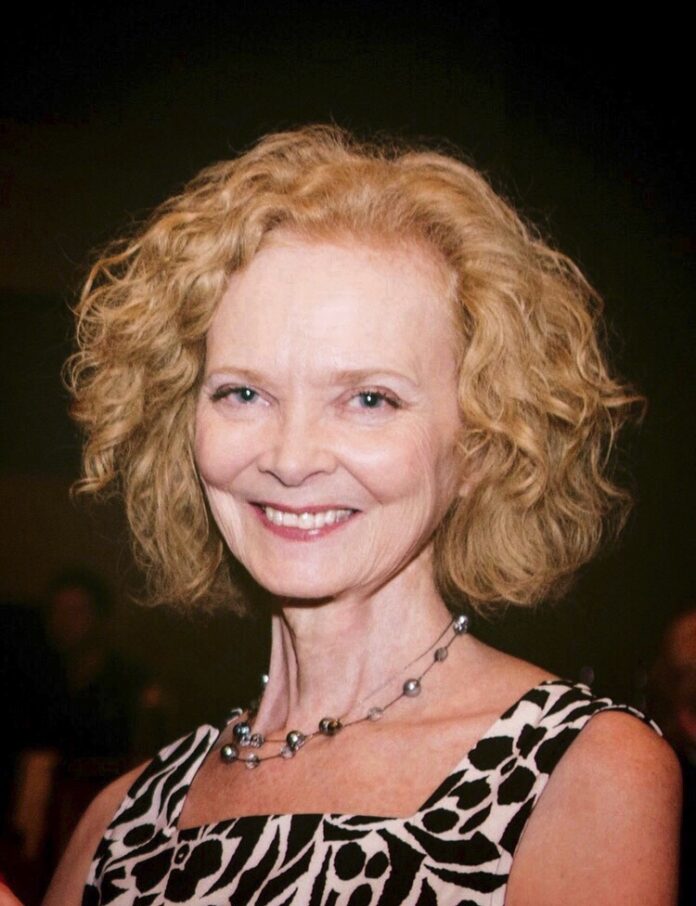The following is the sixth installment in a series about Nan Dorland, a radio star from New York City who struggled to become a writer and a prospector in northern Saskatchewan. Follow at www.nandorland.blogsot.com or on Instagram @discoveringnan.
“My wife and I had been stop-watch slaves in New York for more than ten years,” Richard Morenus writes in Maclean’s magazine (“From Broadway to Bush, Sept. 1, 1946). “I, as writer-director of network programs, [Nan] as one of the more popular actresses who suffer daily in serials before the microphone.” The cost of obeying the studio clock “was great in ruined digestions, tired bodies, and nerves as taut as piano wires,” Morenus continues. “Something had to snap. It had been Nan.”
In 1939, Nan, suffering severe abdominal pain, underwent emergency surgery in New York for a perforated ulcer. “It was the intense competition of acting that caused her health to deteriorate,” Nan’s second husband John Albrecht later told his friend Bob Lee. “After several ulcer operations, the doctors demanded that she change occupations or her life would be in jeopardy.” [Source: Bob Lee, The North Called Softly. Prince Albert, Saskatchewan: Self-published, 1977.]
After Nan’s emergency operation, her surgeon told Richard that her radio career was over. “No more stage work, no more making motion pictures, no more metropolitan living. Oh, she’ll be all right, she’ll be perfectly healthy,” the doctor added quickly, “but her nerves won’t be able to take any more of that stuff. My advice is that you get her out into the country. You’ve always liked the outdoors, Dick, and it’s Nan’s salvation to live away from the city so you might just as well make up your mind to it.”
During Nan’s convalescence, she and Richard made the life-changing decision “to cut loose and carve a year-round existence out of the wilderness” in northern Ontario. They got out a map of Ontario and traced a road running north to the small town of Sioux Lookout. “Here, then, was what we were looking for,” Richard writes. “This would be our starting point. No motor road to the north. No railroad to the north. Nothing to the north but wilderness.”
In 1940, the Morenuses wrote to the Sioux Lookout Chamber of Commerce and soon learned about a nine-acre island on Abram Lake that had once been a tourist camp. The island was 14 miles by water from Sioux Lookout, and came complete with cabins, and icehouse, a storehouse, canoes, and other outfitting equipment.
On November 16, 1940, Richard and Nan bought the Dubois’ island, sight unseen, for $1200.
The day the deed to their island in northern Ontario arrived in November 1940, Nan and Richard held a little celebration. After that, they started “burning bridges — the contacts with the advertising agencies, and recording companies, and the film companies with which we had worked,” Richard recalls in his 1946 Maclean’s article. “The most spectacular conflagration took place when I quit my job as executive staff writer with NBC, and we watched the security of a steady pay cheque go up in smoke. In the embers lay my experience of over 10 years active affiliation with the [radio] networks, and the end of Nan’s successful career as an actress.”
The couple spent their final days in New York getting rid of everything they owned – things “that would be of no practical use in a land of coal-oil lamps and wood stoves.” They also shopped for wilderness wear and equipment. “Unfortunately,” Richard writes his book in Crazy White Man (1952), “wherever I went to shop, I found no salesman who had ever been north of Albany [New York]. … The clothes I bought were heavy, bulky, colourful, and expensive!” Nan’s task in buying bush clothes was even more challenging. The outdoors was considered to be male turf, so women were left to their own devices to work out their wardrobe problems.
The night before they left New York, Nan and Richard partied with their head-shaking friends who were certain the couple was doomed and gone forever. The next morning without fanfare, they loaded their suitcases, boxes, a typewriter, and their cocker spaniel Nik into their coupe and headed north. It was May 1, 1941.


